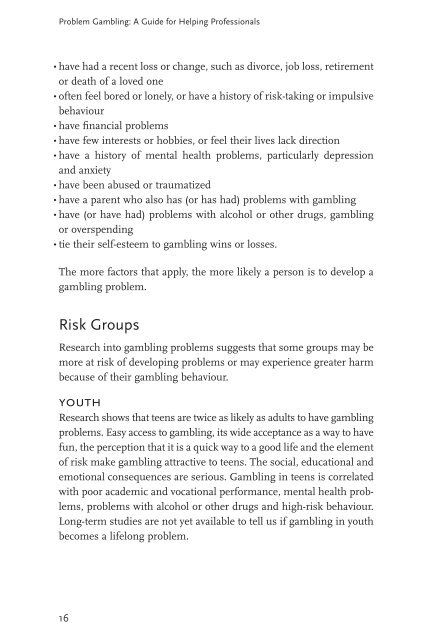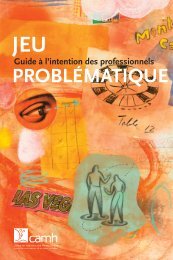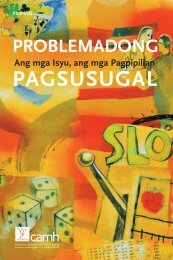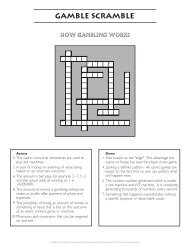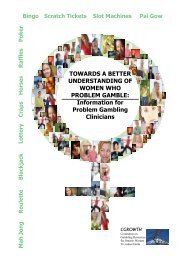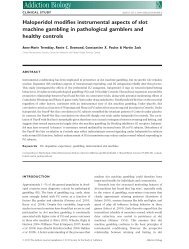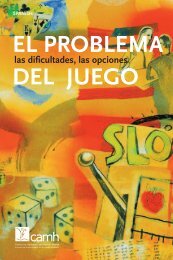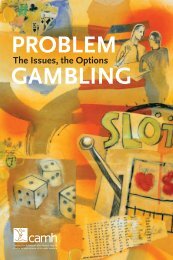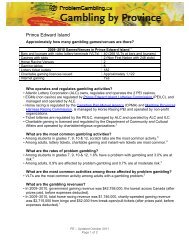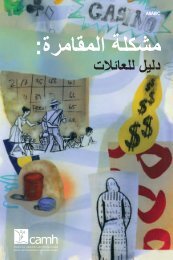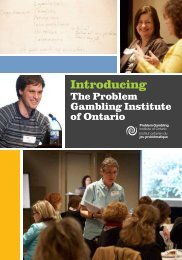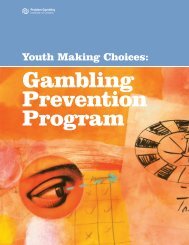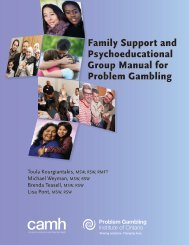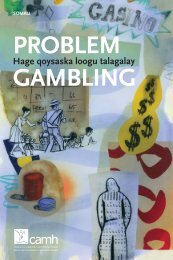Problem Gambling: A Guide for Helping Professionals
Problem Gambling: A Guide for Helping Professionals
Problem Gambling: A Guide for Helping Professionals
Create successful ePaper yourself
Turn your PDF publications into a flip-book with our unique Google optimized e-Paper software.
<strong>Problem</strong> <strong>Gambling</strong>: A <strong>Guide</strong> <strong>for</strong> <strong>Helping</strong> <strong>Professionals</strong><br />
• have had a recent loss or change, such as divorce, job loss, retirement<br />
or death of a loved one<br />
• often feel bored or lonely, or have a history of risk-taking or impulsive<br />
behaviour<br />
• have financial problems<br />
• have few interests or hobbies, or feel their lives lack direction<br />
• have a history of mental health problems, particularly depression<br />
and anxiety<br />
• have been abused or traumatized<br />
• have a parent who also has (or has had) problems with gambling<br />
• have (or have had) problems with alcohol or other drugs, gambling<br />
or overspending<br />
• tie their self-esteem to gambling wins or losses.<br />
The more factors that apply, the more likely a person is to develop a<br />
gambling problem.<br />
Risk Groups<br />
Research into gambling problems suggests that some groups may be<br />
more at risk of developing problems or may experience greater harm<br />
because of their gambling behaviour.<br />
youth<br />
Research shows that teens are twice as likely as adults to have gambling<br />
problems. Easy access to gambling, its wide acceptance as a way to have<br />
fun, the perception that it is a quick way to a good life and the element<br />
of risk make gambling attractive to teens. The social, educational and<br />
emotional consequences are serious. <strong>Gambling</strong> in teens is correlated<br />
with poor academic and vocational per<strong>for</strong>mance, mental health problems,<br />
problems with alcohol or other drugs and high-risk behaviour.<br />
Long-term studies are not yet available to tell us if gambling in youth<br />
becomes a lifelong problem.<br />
16


